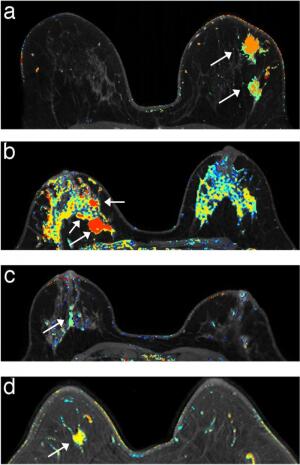by
John R. Fischer, Senior Reporter | September 20, 2018

Two MRs a year can detect early stage
breast cancer in high genetic risk
patients faster and more efficiently than
an annual mammogram, according to
a new study
Researchers in Chicago and Seattle are advising young women at high genetic risk of developing breast cancer to ditch their annual mammogram in exchange for two MRs every six months.
Presenting their findings at the annual San Antonio Breast Cancer Symposium, the scientists from the University of Chicago Medicine and the University of Washington argued that twice-a-year MR scans are more effective at detecting early breast cancer in women with high-risk genetic profiles than an annual mammogram alone.
"Women with mutations in BRCA1 or BRCA2 have very different needs for surveillance for breast disease than women with no mutations in these genes,” study co-author Mary Claire King, professor of genome sciences and of medicine at the University of Washington and the American Cancer Society Research Professor for Breast Cancer, said in a statement. “This is particularly true for healthy young women with mutations. It's truly critical to offer intensive surveillance to still-healthy women with BRCA1 or BRCA2 mutations."



Ad Statistics
Times Displayed: 46209
Times Visited: 1402 MIT labs, experts in Multi-Vendor component level repair of: MRI Coils, RF amplifiers, Gradient Amplifiers Contrast Media Injectors. System repairs, sub-assembly repairs, component level repairs, refurbish/calibrate. info@mitlabsusa.com/+1 (305) 470-8013
Annual dynamic contrast-enhanced magnetic resonance scans, along with annual mammograms, are recommended by the American Cancer Society to women at high risk of developing breast cancer, with many advised to begin undergoing exams starting at age 30.
Researchers compared the efficiency of MR to mammography in the cases of 295 women who possessed a greater than 20 percent lifetime risk of developing breast cancer. One of 11 known breast-cancer-related genetic abnormalities was found in 53 percent of enrollees, with 75 percent carrying BRCA1 mutations and 61 possessing BRCA2 mutations. Women diagnosed with breast cancer or ductal carcinoma in situ before 35, or who had a mother or sister diagnosed with breast cancer before age 50 (before 40 for those of African descent) were also included. The mean age for participants at the beginning of the study was 43.3 years.
Participants were subjected to a panel of genetic tests examined by a physician or genetic counselor to identify genes associated with predispositions to breast cancer. A clinical breast exam and a DCE-MR scan were then conducted every six months, as well as a digital mammogram every 12.
Researchers identified four cases of ductal carcinoma in situ and 13 early stage breast cancers, fifteen of which were found in participants with pathogenic mutations. Eleven possessed BRCA1 while three had BRCA2 and one involved CDH1. All cancers detected were smaller than a centimeter with the mean tumor size measured at 0.61 centimeters. Cancer in all cases did not spread to the lymph nodes.

